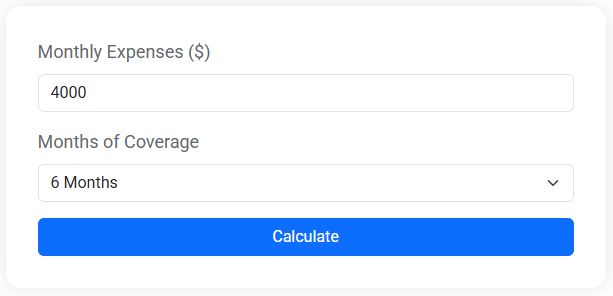Budgeting as a Couple: Tips for Managing Money Together

Managing finances as a couple is essential for building a strong financial foundation, and this involves effective communication, setting shared goals, and dividing responsibilities. It's important to practice compromise and flexibility to accommodate different spending habits and priorities, and consider seeking professional help if needed to navigate any financial challenges together. By working collaboratively and transparently, couples can create a harmonious financial future.
Managing finances as a couple can sometimes feel like a high-wire balancing act, but it’s essential for building a strong, harmonious financial foundation. Whether you're combining assets for the first time or you've been navigating joint finances for years, the key to success lies in effective communication, setting shared goals, and dividing responsibilities in a way that respects each partner’s strengths and preferences. Just like any partnership, financial collaboration requires compromise and flexibility. Different spending habits and priorities are natural, and addressing these differences openly can prevent small issues from ballooning into major stress points.
Think of it this way: budgeting as a couple is like planning a road trip. You both need to agree on the destination and map out how you’ll get there. This journey, however, is not just about numbers on a spreadsheet. It’s about understanding each other’s financial values and creating a plan that reflects both your dreams and realities. Here's a closer look at how to manage money together, ensuring your financial future is as bright as your personal one.
Effective Communication
The cornerstone of any successful financial partnership is communication. It’s crucial to have open and honest conversations about money, even if it feels uncomfortable at first. Discuss your income, debts, spending habits, and financial aspirations. According to financial therapist Amanda Clayman, "Talking about money regularly helps you stay on the same page and avoid surprises."
Start by setting aside regular times to discuss finances, like a monthly money date. Use this time to review your budget, track your progress towards goals, and address any financial concerns that may have arisen. Remember, this isn't just about numbers. It’s about understanding each other’s perspectives and respecting each other’s financial boundaries.
Being honest about past financial mistakes can also be valuable. Sharing these experiences can foster trust and provide opportunities for growth. After all, no one is perfect, and learning from each other's past can be a powerful way to build a stronger financial future together.
Setting Shared Goals
Before you can create a budget, you need to know what you’re budgeting for. Setting shared financial goals is a vital part of the process. These could range from short-term objectives like saving for a vacation, to long-term ambitions such as buying a home or planning for retirement.
To set effective goals, start by listing everything you both want to achieve. Then categorize these goals by timeline and priority. This helps you both see the bigger picture and align your individual desires with your joint future. Financial advisor Jane Smith suggests, "When couples set goals together, they create a sense of teamwork. It’s no longer just one person’s dream; it’s a shared vision."
Make sure to revisit these goals regularly. Life is unpredictable, and your priorities may shift over time. Being open to renegotiating your goals is essential to keeping both partners engaged and motivated.
Emergency Fund Calculator
Wondering how much you should set aside for life's unexpected moments? Our Emergency Fund Calculator helps you quickly figure out how much you need to save to cover your expenses for 3, 6, or even 12 months. Whether you're building a financial safety net or planning for job loss, medical bills, or other emergencies, this tool gives you a clear savings goal to aim for — fast and easy.
Dividing Financial Responsibilities
Once you’ve set your goals and established a budget, it’s time to decide who will take on which financial responsibilities. This division of labor should play to each partner’s strengths and preferences. One partner might be better at handling day-to-day expenses, while the other excels at long-term planning and investments.
Consider creating a system that works for both of you. This could mean alternating who pays the bills each month or one person tracking expenses while the other manages savings and investments. According to a study by the National Bureau of Economic Research, couples who divide financial tasks based on skills rather than tradition tend to report higher relationship satisfaction.
Remember, the goal here is not to relieve one person of all financial duties, but to ensure that both partners are actively engaged and informed about their financial situation. Regular check-ins can help keep both partners accountable and aware of each other’s financial roles.
Practicing Compromise and Flexibility
No two people have the same financial habits or priorities, and that’s okay. What’s important is finding a middle ground where both partners feel heard and respected. Compromise is crucial, whether it’s about how much to save each month or deciding whether to splurge on a luxury item.
Start by understanding each other’s money personalities. Is one of you a saver while the other is a spender? Knowing these tendencies can help you anticipate potential conflicts and address them proactively. Financial planner Chris Hogan notes, "Relationships require give-and-take, especially when it comes to money. Being willing to compromise shows respect and understanding."
Be prepared to adjust your budget as circumstances change. Flexibility is a strength in any relationship, and it’s especially true for financial management. Whether it’s dealing with an unexpected expense or a change in income, being adaptable can help you navigate the ups and downs together.
Seeking Professional Help
Sometimes, despite your best efforts, navigating financial challenges can feel overwhelming. In these cases, seeking professional help can be a wise decision. A financial advisor or planner can offer an unbiased perspective and help you develop a strategy tailored to your unique situation.
Counseling or financial therapy can also be beneficial, especially if financial stress is impacting your relationship. As Amanda Clayman points out, "A third party can help mediate conversations and provide tools to improve your financial communication."
Don’t hesitate to reach out for help if you need it. Professional guidance can provide clarity and confidence, helping you both feel more secure in your financial journey.
Working Collaboratively and Transparently
At the end of the day, managing money as a couple is about collaboration and transparency. Maintaining an open dialogue and being willing to adjust your plans as needed are key components of a successful financial partnership.
Consider using budgeting tools or apps that allow both partners to have visibility into your finances. This transparency can help prevent misunderstandings and foster a sense of joint responsibility.
Celebrate your financial wins together, no matter how small. Whether it’s paying off a debt or sticking to your budget for a month, acknowledging your successes can reinforce positive behavior and keep you motivated.
In the journey of managing money together, remember that it’s not just about reaching the destination, but also about growing and learning along the way. By working collaboratively and transparently, you can create a financial future that supports and enhances your life together.








